Spring Term AY2024
A total of 60 students, including 9 new students, have enrolled in the general education course "Service-Learning" in the 2024 spring term. In this class, in which students learn the process of learning through service activities from lectures and actual activities, students spent 18 hours in service activities at about 30 community organizations around Mitaka City and other areas. The activities covered various fields including child support, education, welfare, environment, international exchange, and community development.
The students also had an opportunity to think independently about and discuss local community issues with speakers from the community organization that hosted the students. It was impressive to see the students talking enthusiastically with the lecturers even after the class was over.
A student has decided to take up the challenge of 30 days of community service-learning during the summer recess after taking this class.
In this issue, we focus on service activities in Japan, including community service-learning, in which students engage in service activities for 30 days at NPOs and public organizations in Japan. We hope that more people will become aware of the appeal of this program and that it will encourage more students to be interested in service activities in Japan as well as overseas.
Contents
- International Student's Voice "What I felt after experiencing SL activities"
- SL ambassador’s voice "SL Activities and My Career Path"
- SL Ambassador Interview with a Host Organization
- Developing Campus-Community Partnerships for Service-Learning
- Message from the Director of SLC
- Editor's note
International Student's Voice "What I felt after experiencing SL activities"
An international student from Singapore engaged in SL activities in Japan after taking a service-learning class. She reflected on her SL experiences from the unique perspective as an international student.
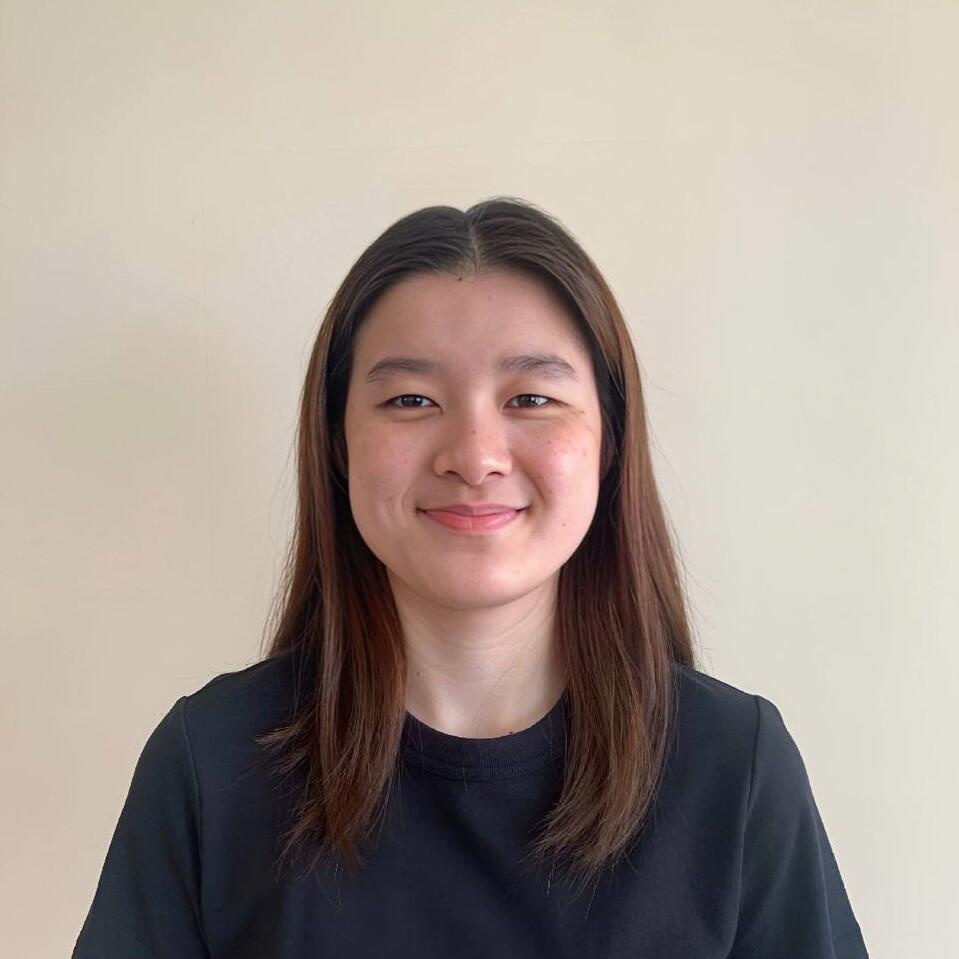
Sephie Yu Wen LEAN
Service-site: Free Space Cosmo/Hitohakoya Café
I started volunteering in Japan was because of last Autumn's service-learning class. I was already interested in ICU's service-learning program before coming to ICU. The reason is that I was doing volunteer work in Singapore, and I wanted to experience volunteer work in Japan to feel how volunteer work differs from country to country.
With the service-learning class as an opportunity, I did service-learning activities in two places. It is "Hitohakoya Café" run by JR East Chuo Line Community Design and "Free Space Cosmo" in Mitaka. At the café, I was taught how to make coffee by a professional barista who happened to be an ICU graduate and learnt mandala art using threads from a community member. I also helped with the bread festival, Halloween children festival, mochi-making at Musashisakai Station, and visited Musashisakai station office. Through the activities at the cafe, I felt a sense of belonging to Mitaka as I had more opportunities to interact with local community members.
In Free Space Cosmo, I interact and play with children who don't go to school. At first, I wanted to listen to the worries that children may have and contribute to Cosmo in some way, but this feeling changed a little while I was volunteering. When I first interacted with the children, I felt so strongly as a foreigner and couldn't speak Japanese well, and it was hard to get into the group of children, so I felt a little dejected.
However, a staff there who was also a former ICU student, has been helping me ever since I started service-learning. She always says "Sephie, let's play together," and thanks to her support, I was able to get along well with the children. What I learned at Cosmo is the importance of the respecting children's desire to learn freely and facilitating the environment to support their learning.
Today, the social issue of non-attendance in Japan is getting worse, and it may be related to the environment in which children learn and the human resources that Japanese society hopes to develop. Currently, I’m interested in what education should be like, and I’m working on a plan to facilitate a discussion with children and staff who are interested in this topic at Cosmo.
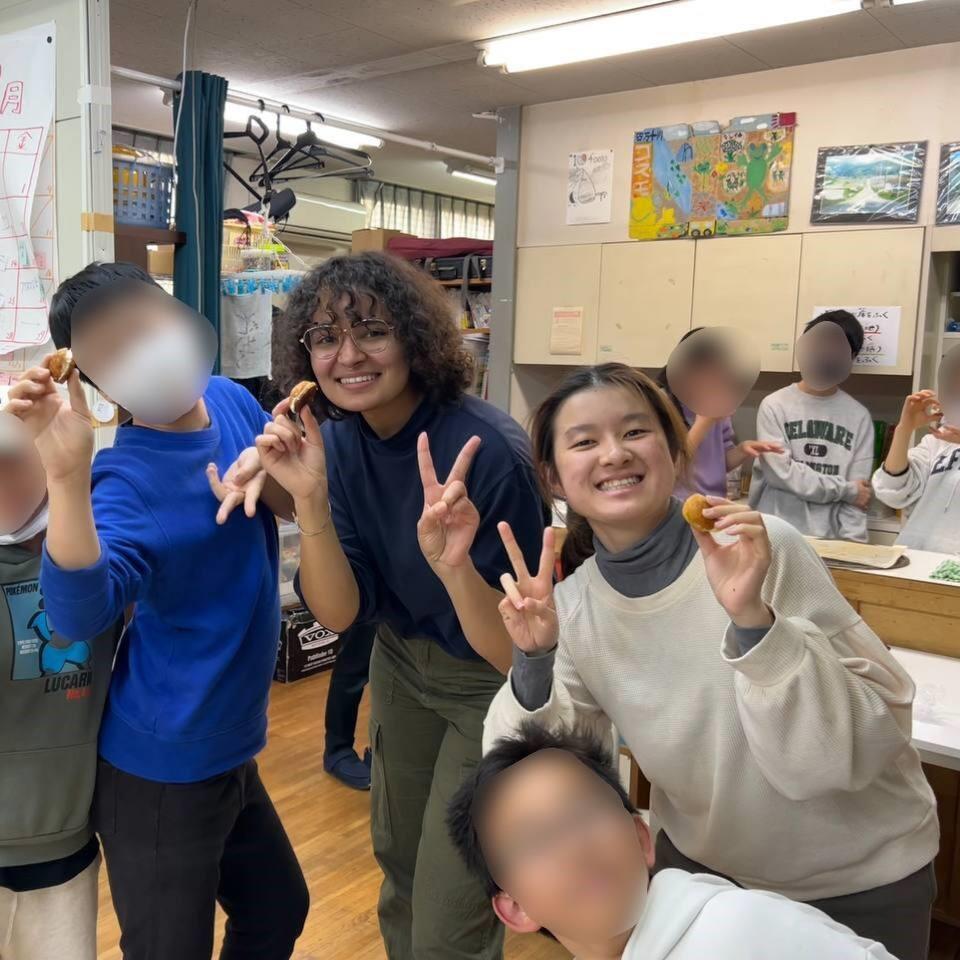
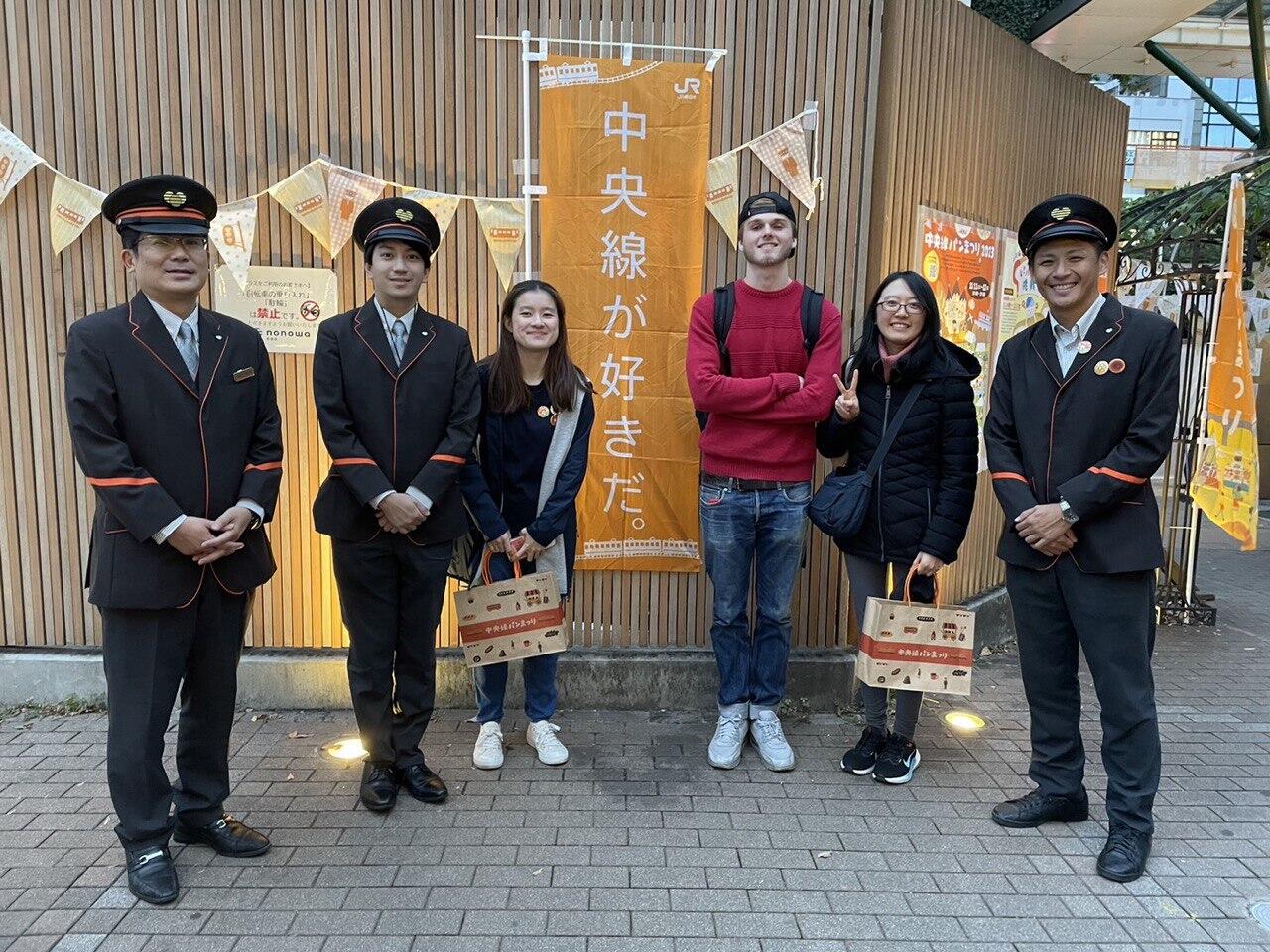
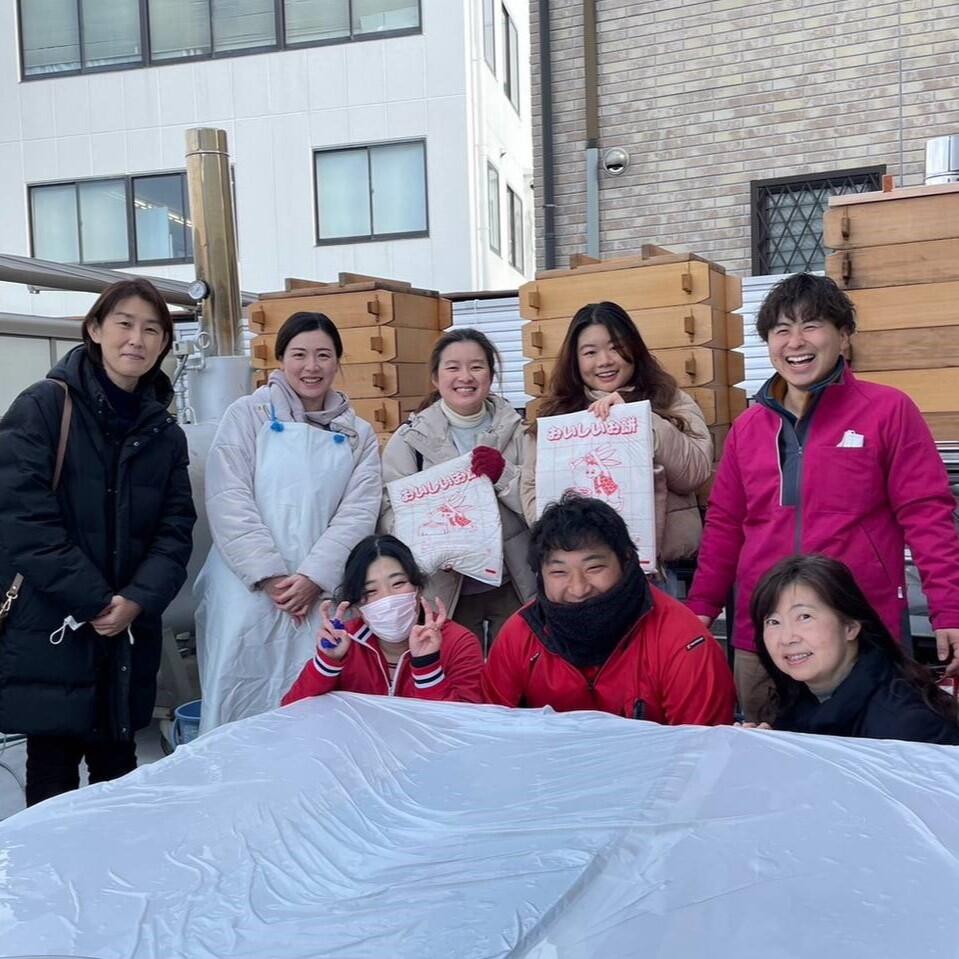
|
SL ambassador's voice "SL Activities and My Career Path"
SL ambassador who experienced community service-learning reflected on how her SL experiences connected to her post-graduation path.
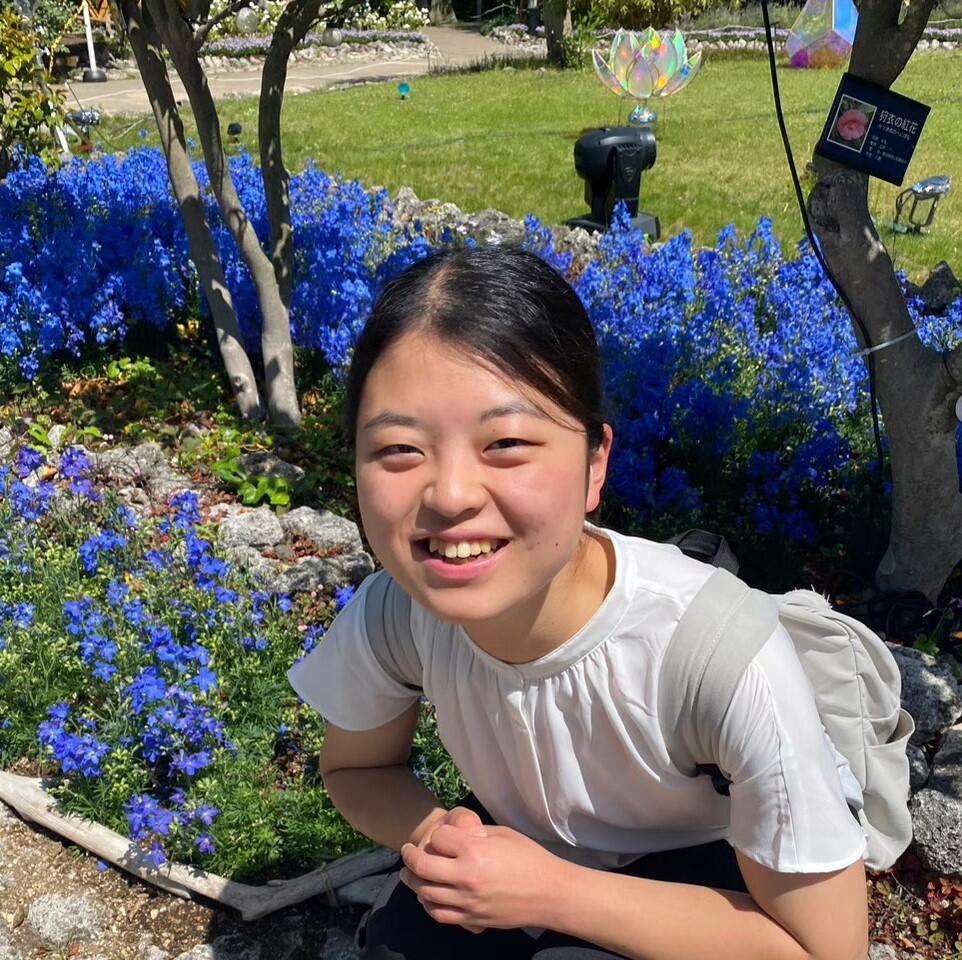
Nao YACHIDA
Service-site: Menno Village Naganuma, Hokkaido
During the summer vacation of my sophomore year, I spent a month at Menno Village Naganuma in Naganuma Town, Hokkaido, for the community service-learning program. Menno Village Naganuma is a CSA (Community-Shared Agriculture) farm, where vegetables, wheat, and sheep are raised.
What struck me about their activities during the stay was the way they view "work". Originally, I viewed work as labor which generates money based on working hours. On the other hand, the people at Menno Village Naganuma were saying that work is something that enriches our life. Nature keeps us alive, and farmers produce food to keep us alive. There is a richness in growing food that cannot be expressed in numbers.
After I graduate from ICU, I am planning to work to connect people with disabilities to company employment. The way I perceive wealth gained through the service-learning program helped me to choose this job. I think wealth for me is not how much money we have but providing more opportunities through engaging with people.
The time I spent on the service-learning activities was very important, which I couldn't have experienced anywhere else in terms of expanding my view. I hope that more and more students will participate in the community-service learning activities.
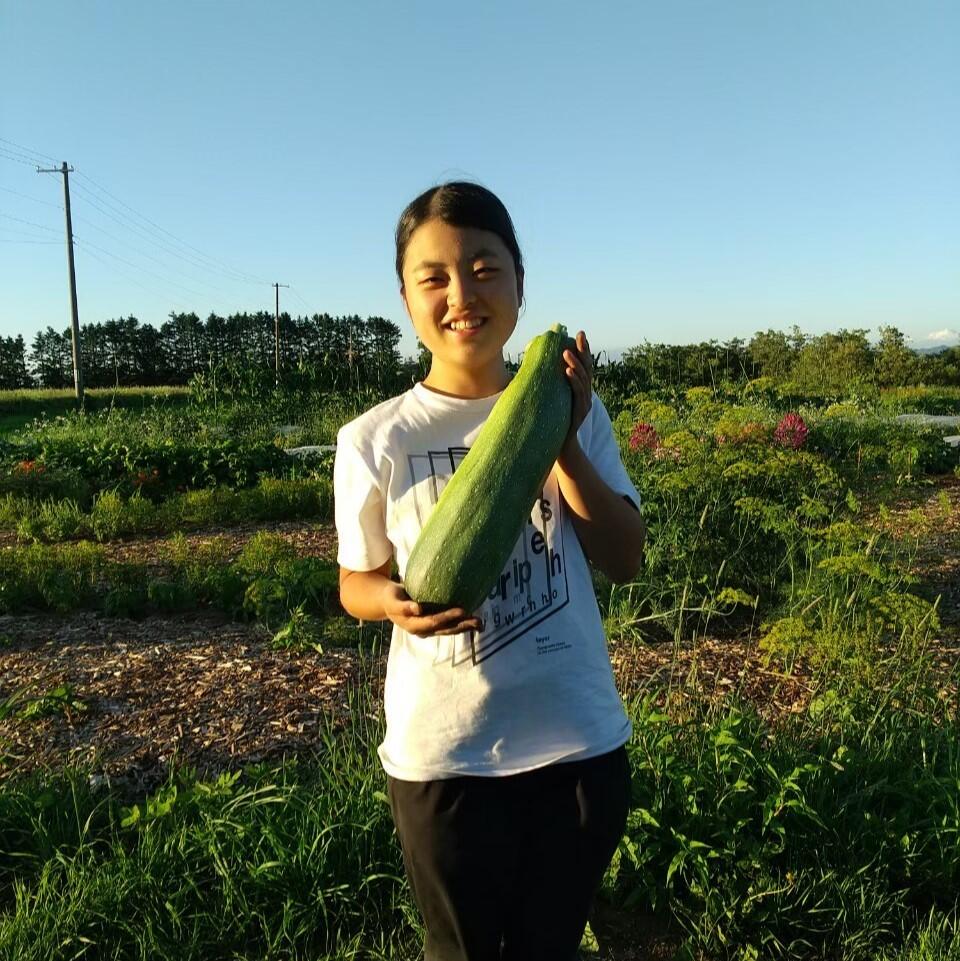
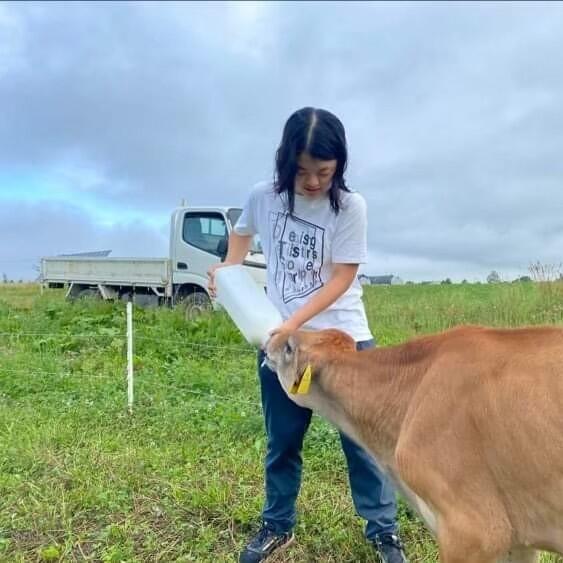
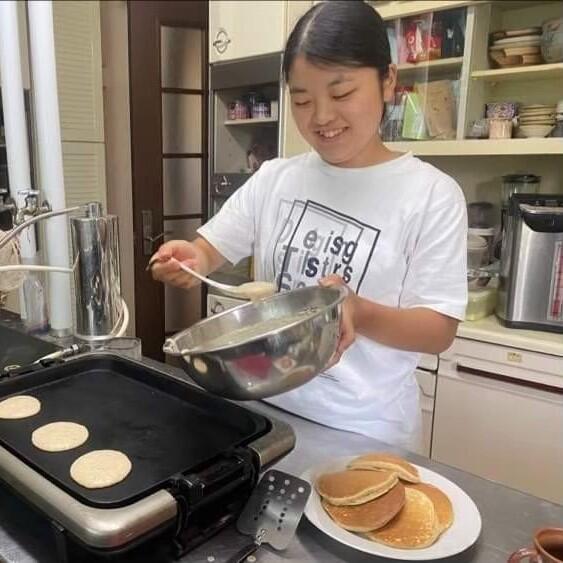
|
SL Ambassador Interview with a Host Organization
An SL Ambassador who had experienced service activities reflected on her activities while interviewing with a host organization.
Miyako WATANABE
Service-site: Ringonoki Kids' Club (Kanagawa pref.)
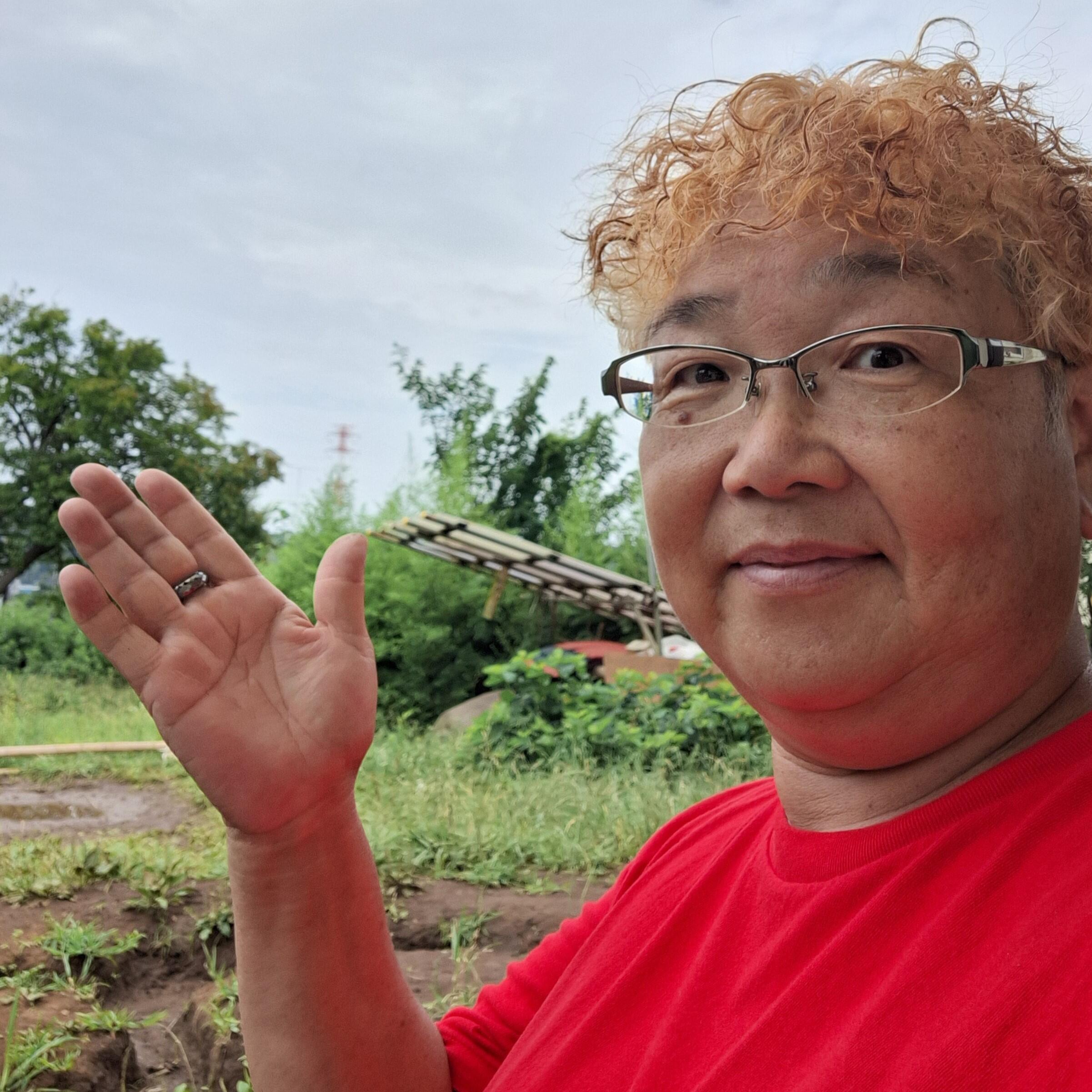
Ringonoki Kids' Club
I spent 30 days of service activities at my alma mater, Ringonoki (Apple Tree) Kids’ Club (Ringonoki) in the 2021 autumn term due to my interest in children's feelings and inclusive education.
Ringonoki is an unlicensed childcare facility located in Yokohama, Kanagawa Prefecture. Ringonoki was founded in 1982 by Hirotaka Nakagawa (a singer-songwriter and picture book author), Masami Saito (a former designer, current nursery schoolteacher), and Aiko Shibata with the goal of providing total work for children. Currently, Aiko Shibata serves as the representative and provides childcare services with the basic stance of "embracing each individual".
Looking back on those days, I interviewed Ms. Kiyomi Sato, called "Matsumo", who was good to me at Ringonoki.
Miyako: What is your impression (good points, difficulties, or significance) about accepting a service-learning student?
Matsumo: Miyako Watanabe (hereafter "Miyako-san") came for her learning, but the children did not know that. However, her desire of learning about the children, knowing them more in other words, was conveyed straight to the children. So, they acknowledged Miyako-san as one of the members and liked her very much. Children are sensitive creatures. I think Miyako-san felt this in the first place, but even so I could sense that it must have been difficult to deal with children's troubles and fighting.
Communicating with children guides you to 1. reflects your early childhood, 2. realize that you have grown up and are not free minded anymore, 3. realize that there is no hierarchy, and 4. recognize that there are no generation differences, facing as a same human being. It doesn't matter whether you are an adult or a child. I think the beauty of this project is that we could find and feel these things through the activities.
Miyako: The keyword "member" is true as Matsumo said. I felt that they recognized me as their "member." Someone always invited me to play with them or asked me to eat lunch together whenever I visited. There were no set rules, so we made up our own rules. I was very happy to feel the sense of being recognized as a "member" each time playing with various rules of different members. It was difficult for me to handle when an argument started. It often started when they were playing together. But I personally think it is nice to have someone to argue with, because it’s not easy to express feelings. They can get back to normal as if they have never argued once they apologize to each other. Children are very honest, and I feel good when I encounter such scenes.
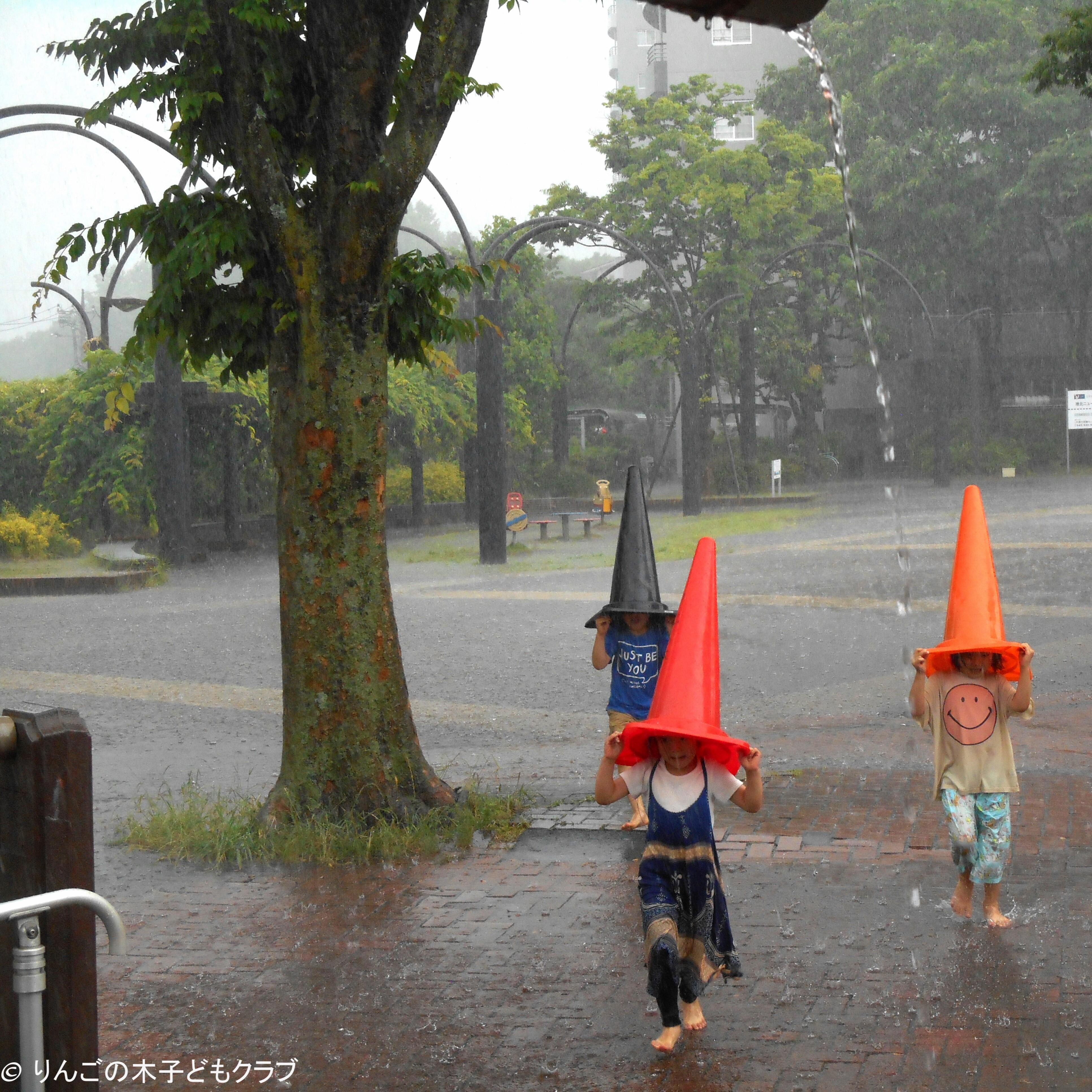
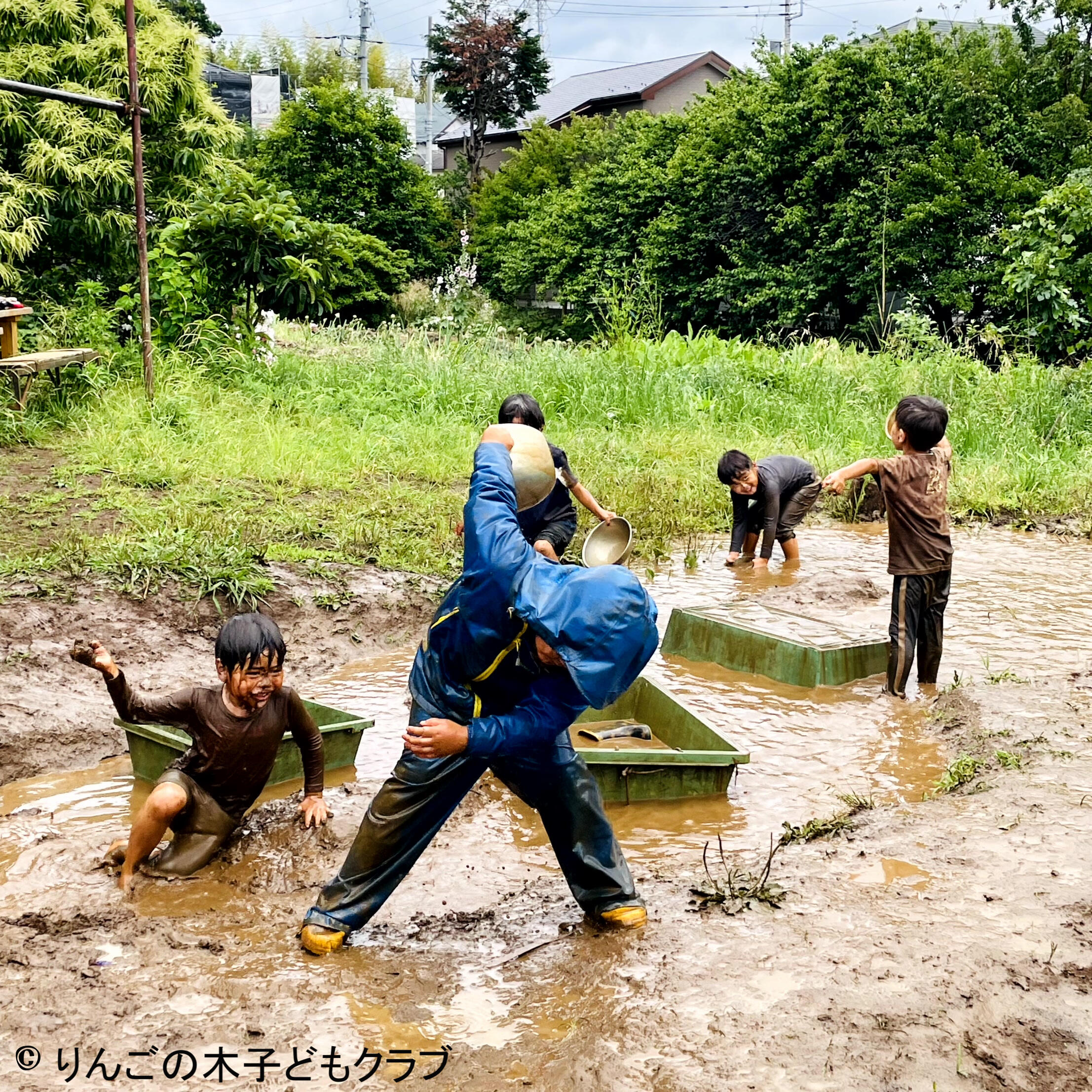
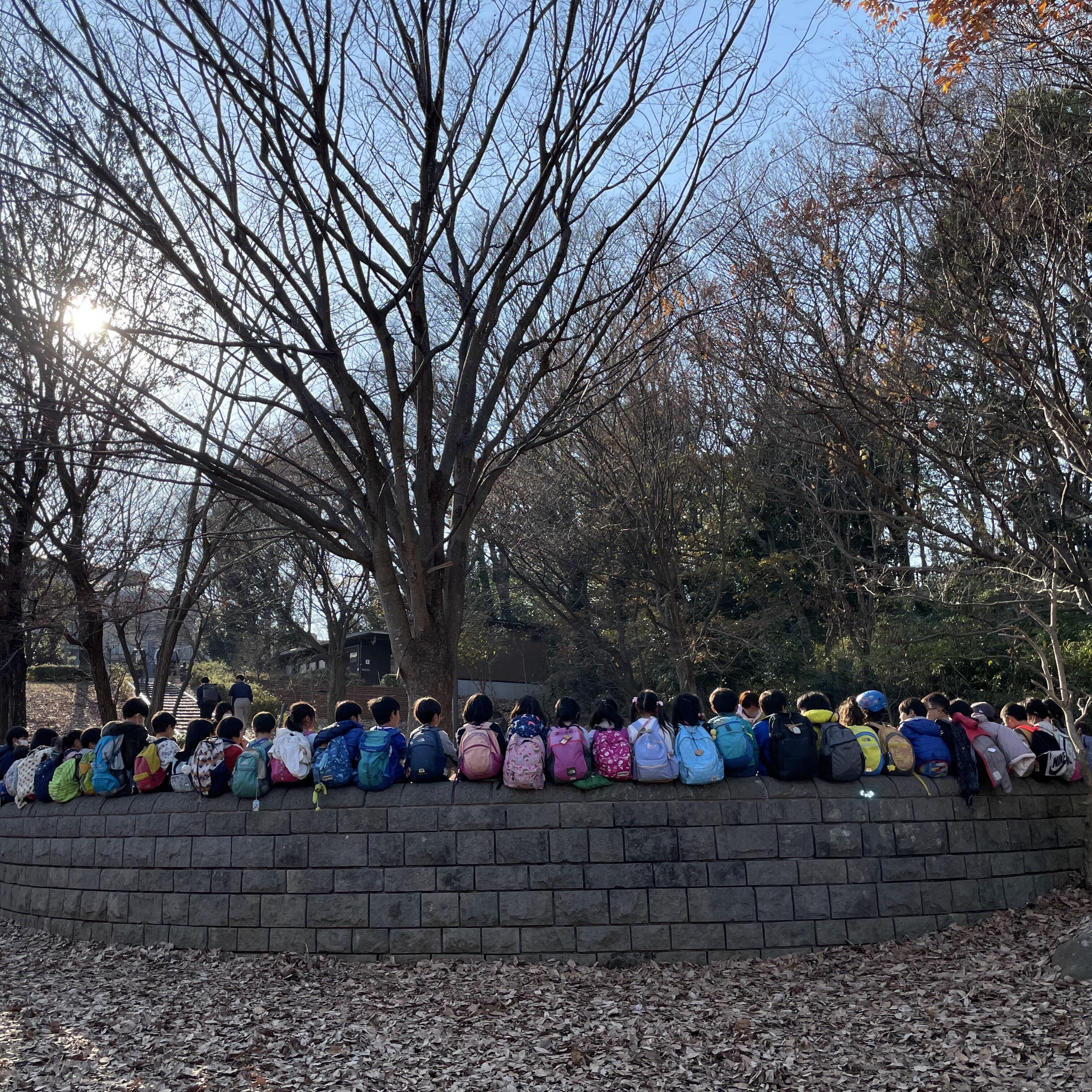
|
I have summarized my impressions of the joy and difficulty of the service-learning (SL) activities, the relationship with the host organization, also my outlook, through the process from finding a host organization to the end of the activities.
Joy of SL activities:
One of the most appealing aspects of the community service-learning program is that you can learn at a host organization of your choice based on the theme you wish to explore. I set two themes: what education is and what inclusive education is and conducted 30-day activities at my alma mater, Ringonoki.
To explore the first theme: what education is, I decided to engage in service activities at Ringonoki because I thought it was important to know how children feel. Toddlers ranging from 18 months to six years attended Ringonoki. By communicating with the children, I had chances to think and learn about what children are feeling and thinking every day. I enjoyed the days I spent together with them very much.
Second, I believe that the environment of Ringonoki is perfect for exploring what inclusive education is. Ringonoki accepts every child, supports and looks at each of them individually. Ringonoki is not practicing inclusive education; however, what they are embracing every day is the value of "staying close to the child's heart" and this environment has naturally become inclusive.
Difficulty of SL activities:
One of the difficulties was to keep visiting. I kept going to Ringonoki even after my service activities were over for my learning and to see the children's growth. I am very grateful to have a place where I can keep learning with my interest. In fact, many of the SL students also continuously visit their host organizations after their program ends. I attend the alumni camp held every August and participate in events such as sports day, so I still have connections with them.
Relationship with the host organization:
I decided that my positionality in the activities would be "I," neither a child nor an adult. I wanted the children to treat me not only as an equal, but also as an adult, because I wanted the adults of Ringonoki to trust me. However, I could not make decisions on my own when children asked me a favor, of course, so I had to ask Ringonoki adults. Also, since I was in the position of coming here for learning, I always wondered whether I should be a "student," a "graduate," or a "Ringonoki adult". I would have been able to speak more frankly if my purpose of visiting was not learning.
Future Prospect:
My experience at Ringonoki, the starting point of my interest in inclusive education, is invaluable. My interest in inclusive education began after I entered ICU. Inclusive education is "the process of reforming education to ensure that diverse children attend local schools and that all children learn together regardless of nationality, race, language, gender, economic status, religion, or disability. Children with disabilities, foreign roots, and other different backgrounds are all together at Ringonoki; however, they will go to different schools, such as special needs classes and special needs schools, when they move on to primary schools, and this has led me to explore inclusive education. I’ve learned at Ringonoki, attended a training program at an elementary school in Toyonaka City, and studied in various facilities. In any place, I found children are all lively and the environment they are in is normal for them. They have created a natural relationship since growing up and spending time together. Regardless of disabilities or nationalities, they feel no sense of the difference as they "take it for granted" in an environment where they are together. I believe that the relationship between children is truly irreplaceable. They have a good understanding of each other's feelings, personality and how to treat each other.
In the process of my learning, I found that there are still many challenges in promoting inclusive education in Japan today. It is not easy to realize without time, money, and administrative support. Therefore, we need to step up little by little to promote inclusive education. There are many things that can be stepped up, such as understanding the students who need assistance from teachers and about inclusive education, also increasing the number of reasonably accommodated classrooms, for example. So, figuring out feasible inclusive education in Japan is my challenge for the future.
|
|
Developing Campus-Community Partnerships for Service-Learning
Atsuko KURONUMA
Assistant Professor by Special Appointment
Education, Assistant Director of Service-Learning Center
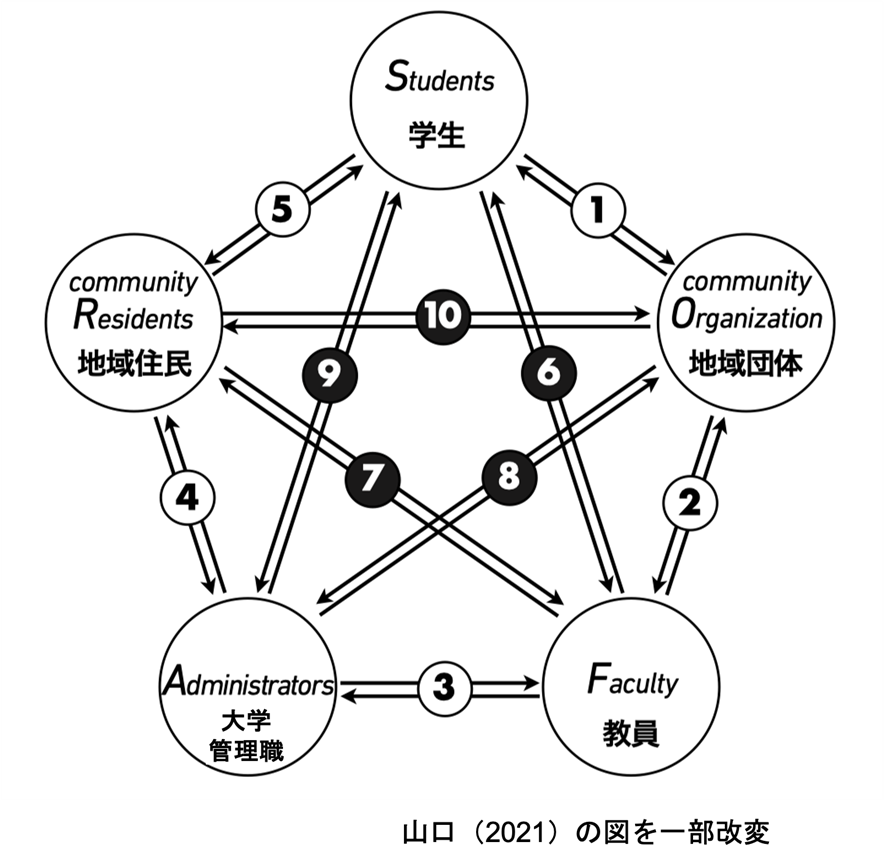
Campus-community partnerships are essential to quality service-learning. To maximize the potential of service-learning, it is crucial to develop and sustain reciprocal partnerships among stakeholders (Jacoby, 2015). Partnerships in service-learning begin with individuals involved in the process of building relationships with one another. The quality of interactions among students (S), community organizations (O), faculty (F), university administrators and staff (A), and community residents (R) is essential, as described in the SOFAR model (see Figure 1; Bringle et al., 2009).
Campus-community partnerships in service-learning typically involve universities using the community as an educational resource while the community uses university resources for its activities. Both parties engage because each has something the other finds useful, which is known as a "transactional partnership." Furthermore, most service-learning programs are based on transactional partnerships. However, there is a call for a higher level of partnership, which is known as a "transformational partnership." This approach goes beyond transactional activities to get things done and seeks relationships that foster transformation in individuals, organizations, institutions, and communities through service-learning. Ultimately, this leads to positive social change (Enos & Morton, 2003).
Message from the Director of SLC
Professor Etsuko KATO
Cultural Anthropology
Director, Service-Learning Center
The cherry blossoms have fallen, the rainy season has passed, and now summer is in full swing. We have capped the number of students taking the spring GE Service-Learning course (70) because we want them to have intimate discussions with each other as they spend 18 hours in service activities. Some say, "What can we do in such a short time?" but we also hear the same comments from those who have done 30 days of service in and outside Japan. No matter what we do, we feel that "we could do it better if we had more time". However, we feel this way because we know we are finite beings. "If I could live forever, what would be the point of doing this today" (V. Frankl). A being who can live forever does nothing forever (except God). To all of you who are rushing through college life with presentations, reports, tests, and other deadlines, cherish the wisdom and power you can create because your time is limited. And don't forget that service can only be created in encounters that are not eternal.
Editor's note
![]() Approximately 50 students participating in the overseas SL program have attended weekly classes to prepare for their SL practicum, delving into their interests and inquiries and fostering teamwork. With the support of our esteemed partner universities, may you all have a once-in-a-lifetime wonderful summer!
Approximately 50 students participating in the overseas SL program have attended weekly classes to prepare for their SL practicum, delving into their interests and inquiries and fostering teamwork. With the support of our esteemed partner universities, may you all have a once-in-a-lifetime wonderful summer!
![]() This spring term, we had just so many visitors from overseas! As international travel resumes and we talk with our guests, we become more aware that we share common hot topics and challenges. I was reminded that we must not narrow our definition of "community" ourselves.
This spring term, we had just so many visitors from overseas! As international travel resumes and we talk with our guests, we become more aware that we share common hot topics and challenges. I was reminded that we must not narrow our definition of "community" ourselves.
![]() During the spring term, I had the opportunities to communicate with members of local organizations hosting SL students and observe SL classes. Witnessing the dedication and passion of these host organization members, as well as the thoughtful discussions among students, has been truly inspiring.
During the spring term, I had the opportunities to communicate with members of local organizations hosting SL students and observe SL classes. Witnessing the dedication and passion of these host organization members, as well as the thoughtful discussions among students, has been truly inspiring.
![]() I had been doing regular maintenance on my road bike over the past two years, but I could clearly see the difference between a professional and an amateur in terms of the attention to detail, even a single screw, building into one piece.
I had been doing regular maintenance on my road bike over the past two years, but I could clearly see the difference between a professional and an amateur in terms of the attention to detail, even a single screw, building into one piece.
![]() I will be one of the board member of my neighborhood association for the first time this year. My job is to handle several events. I enjoy going to see the summer festival every year though I’ll be working behind the back this year. There must be a lot of work but I’ll switch my mind to enjoy every event.
I will be one of the board member of my neighborhood association for the first time this year. My job is to handle several events. I enjoy going to see the summer festival every year though I’ll be working behind the back this year. There must be a lot of work but I’ll switch my mind to enjoy every event.

